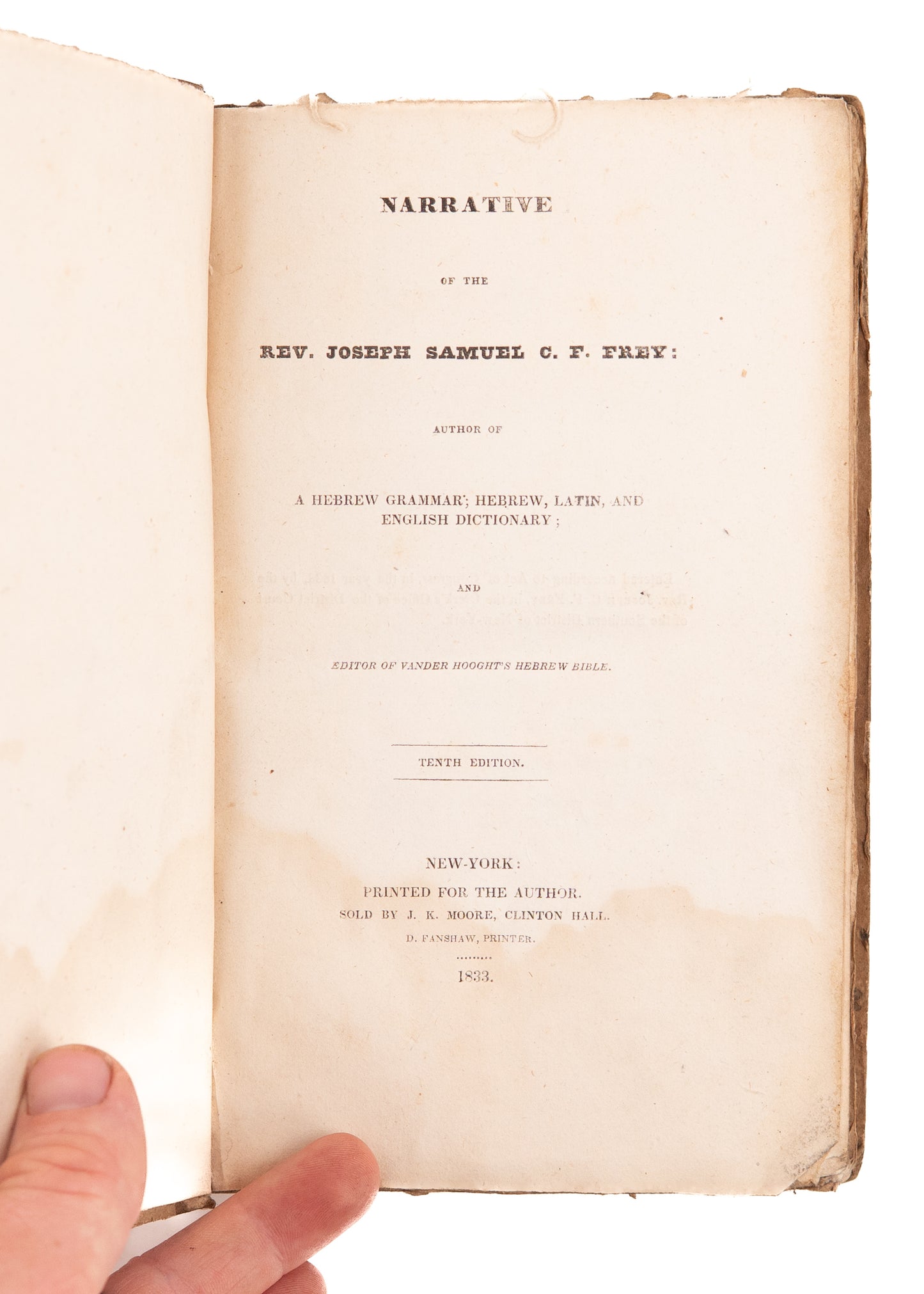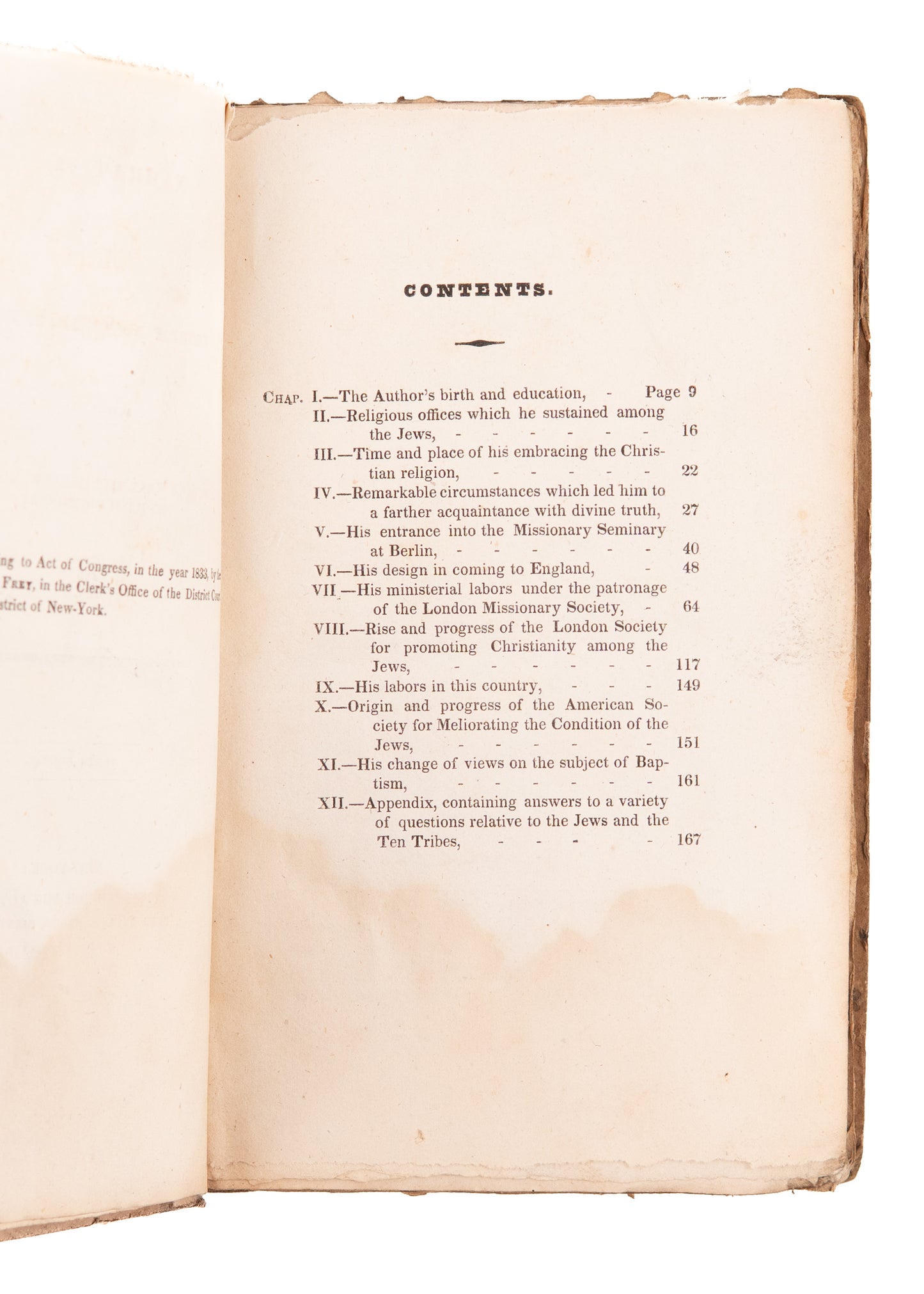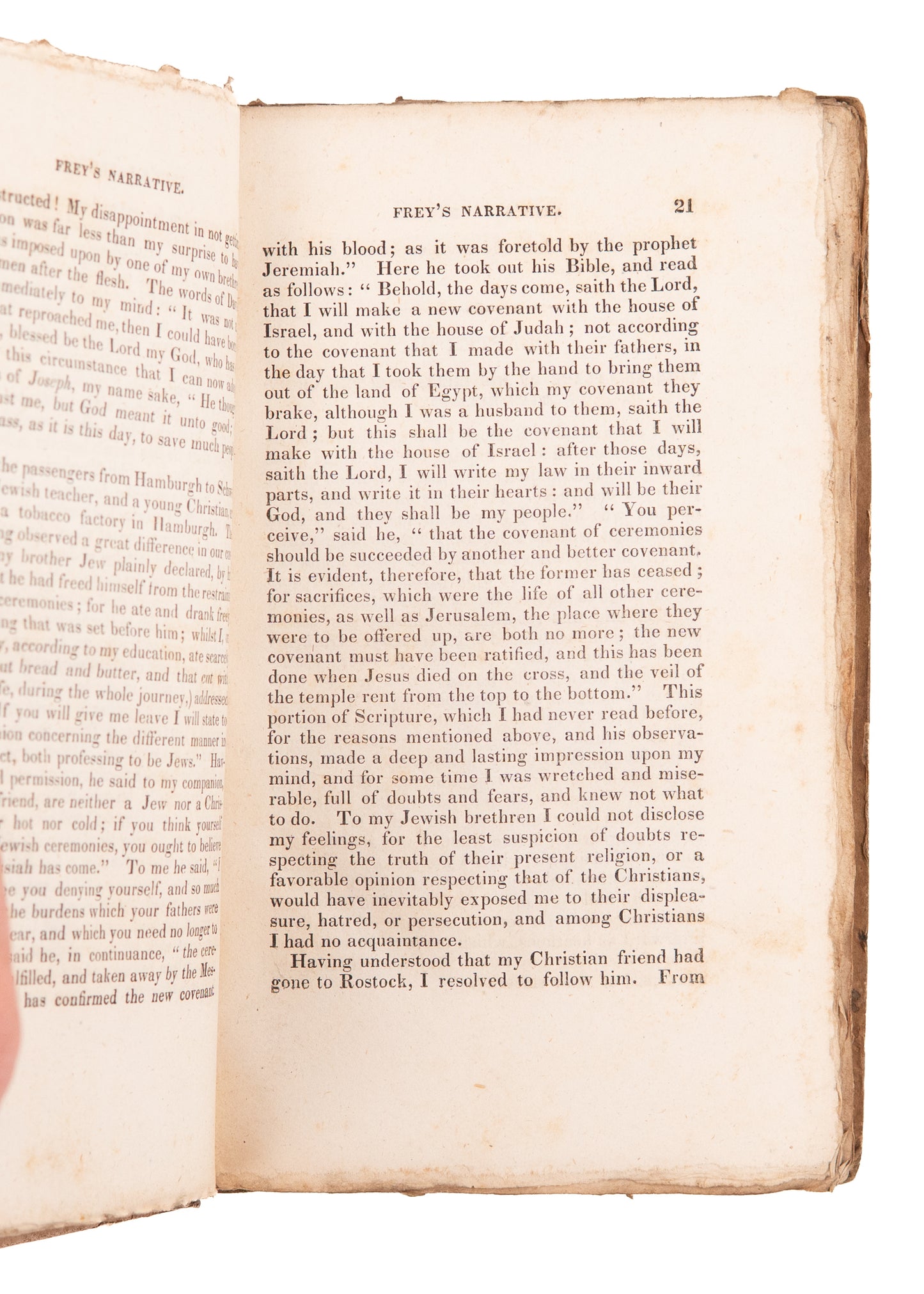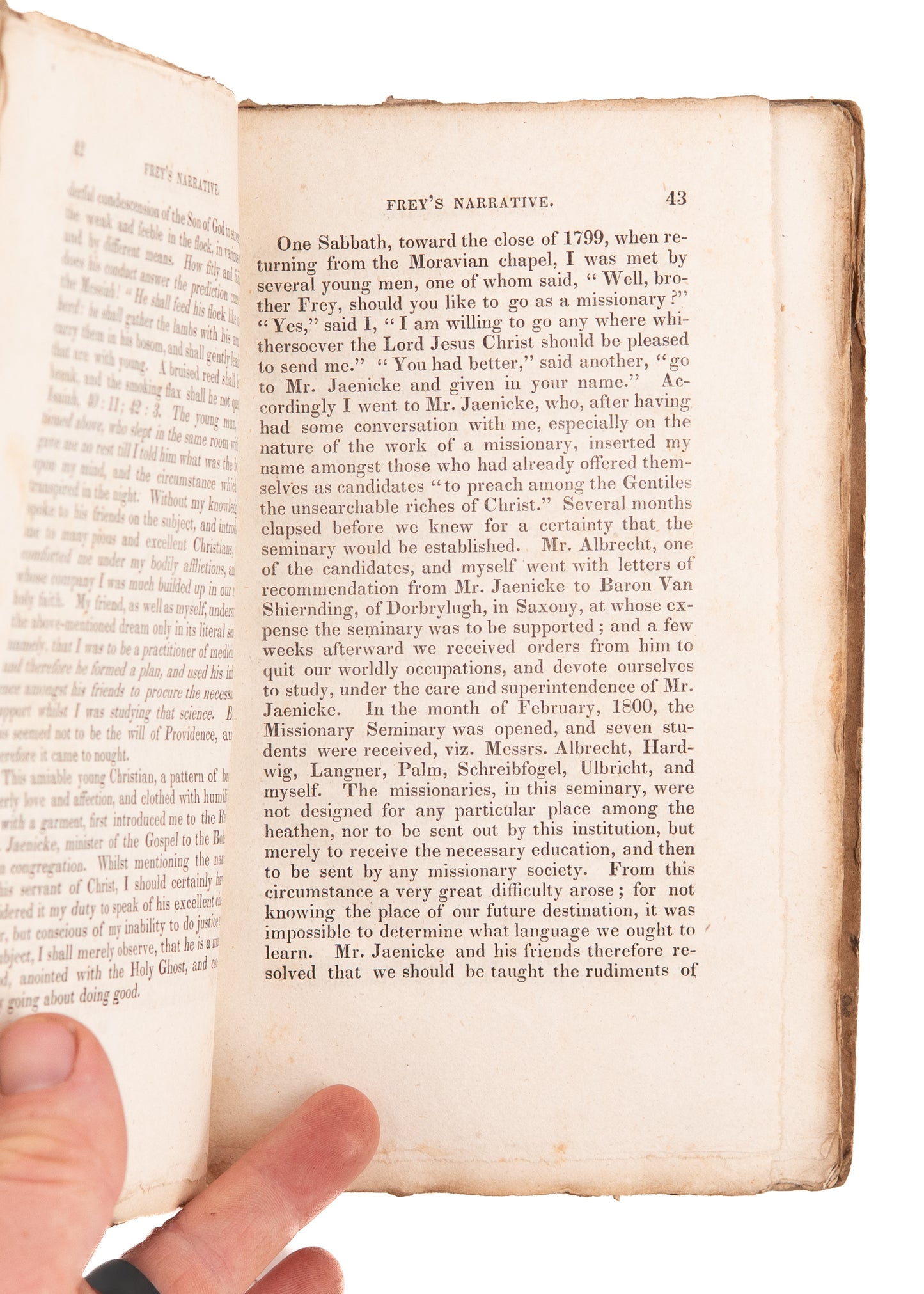Specs Fine Books
1833 JOSEPH SAMUEL C. F. FREY. Narrative of the Early Christian Missions among the Jews - Prophecy.
1833 JOSEPH SAMUEL C. F. FREY. Narrative of the Early Christian Missions among the Jews - Prophecy.
Couldn't load pickup availability
A very scarce early imprint of the life of one the most significant figures in early missions to the Jews that accompanied the eschatological developments of the 19th century under Edward Irving, John Nelson Darby, and the rise of the Premillennial focus on the restoration and place of the Jews in prophecy.
Joseph Samuel Christian Frederick Frey (1771–1850) was born in Germany and became a pietist Lutheran in 1798. Trained in Berlin and later in London, he became deeply involved in witness and evangelism. Frey’s background as a Jewish disciple positioned him as a bridge between the two religious worlds, who at that time were deeply divided. However, his life was often fraught with personal and public controversy, and his conduct often scandalized both Christian and Jewish communities.
Frey played a pioneering role in founding several missionary societies. He established the London Society for Promoting Christianity Among the Jews (LSPCJ) in 1809, the American Society for Meliorating the Condition of the Jews (ASMCJ) in 1820, and the American Baptist Society for Evangelizing the Jews in 1839. His work included translating Christian texts into Hebrew and Yiddish, establishing schools, factories and training institutions (the Operative Jewish Converts Institute), and conducting extensive outreach and fundraising. In 1813 he founded the Beni Abraham, one of the first groups of Jewish disciples of Jesus. However, his aggressive methods and controversial personal behavior—including accusations of financial and sexual misconduct—eventually led to his dismissal from the LSPCJ. Goakman, Sailman and Norris and others all wrote scathing accounts of his activities.
Frey was instrumental in shaping the early development of Hebrew Christianity and Jewish-Christian relations. He laid the groundwork for future missionary activities and inspired the creation of several key missionary societies. His work, although polarizing, mobilized both support and opposition within Christian and Jewish communities. His presence spurred Jewish communities in the United States to strengthen their institutions in response to missionary efforts, highlighting his lasting influence, even if indirectly.
Frey’s legacy is a mixture of significant accomplishments and deep controversy. His zeal for evangelism led to the formation of major missionary organizations, and he is regarded as a “prime mover” in the history of Jewish missions. However, his personal scandals and the complexities of his Jewish-Christian identity left a more ambiguous mark on history. His theological views and missionary methods continue to influence discussions around Jewish missions, but his life remains a source of both inspiration and caution within these movements.
Jacób Jocz refers to De Le Roi’s assessment of Frey’s impact on all subsequent missionaries to the Jewish people:
“Roi, who is not given to exaggeration, says of him: “For the history of Jewish missions, he remains one of the most important personalities, for he is the actual father of the present missionary work.”
Frey, Joseph Samuel C. F. Narrative of the Rev. Joseph Samuel C. F. Frey. Author of a Hebrew Grammar; Hebrew, Latin, and English Dictionary; and Editor of Vander Hooght's Hebrew Bible. Tenth Edition. New-York. Printed for the Author. Sold by J. K. Moore. 1833. 176pp.
A good + copy, bound in hard cover, generally solid, with some dampstaining, and toned throughout.
Share










